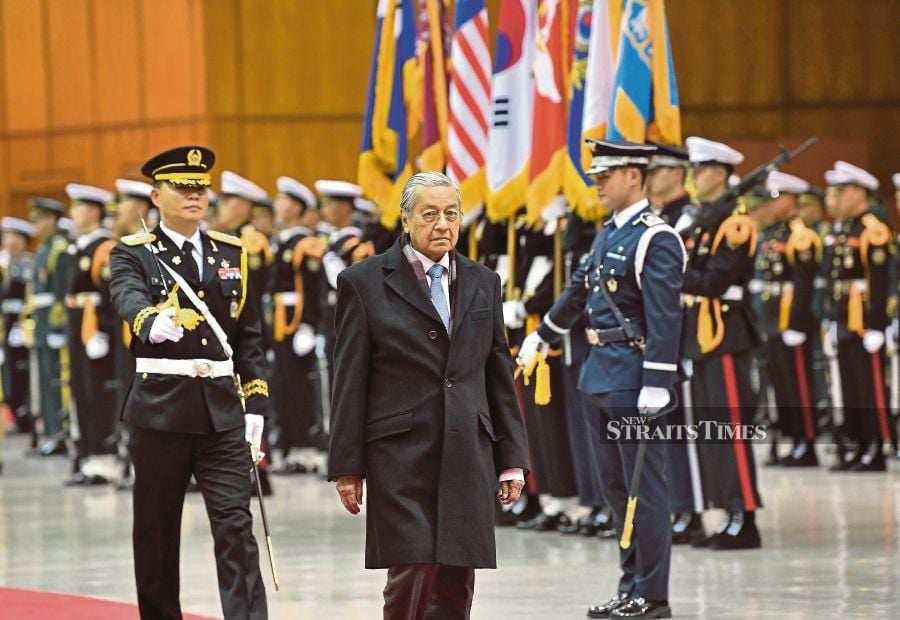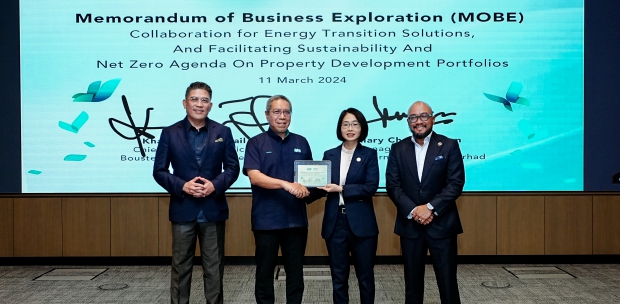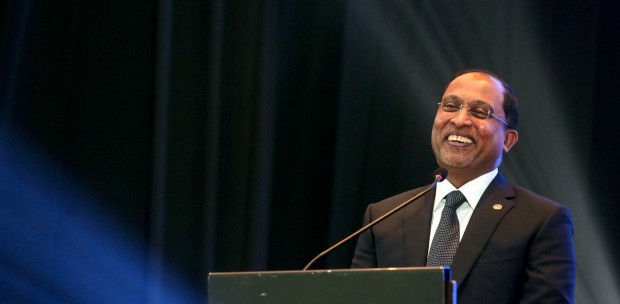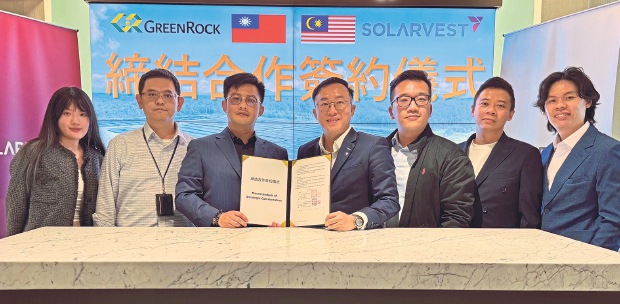SEOUL: The soon-to-be launched National Automotive Policy (NAP) 2019 will open up opportunities for local players to further explore cooperation with the South Korean automotive sector.
Prime Minister Tun Dr Mahathir Mohamad said he was impressed with the advancements made by the South Korean automotive sector and would like it to consider investing more in Malaysia.
“I had an opportunity to drive a hydrogen-powered car and I was impressed by how quiet it was,” said Dr Mahathir, who arrived here yesterday to begin a two-day official visit, his first since becoming the seventh prime minister.
Dr Mahathir, who was accompanied by his wife, Tun Dr Siti Hasmah Mohd Ali, arrived from Busan, where he attended the two-day Asean-Republic of Korea Commemorative Summit, which ended on Tuesday.
He told a gathering of captains of industry from 29 companies, led by South Korean Trade, Industry and Energy Minister Yoo Myung-hee, that Malaysia would like to see investments in high-tech manufacturing.
Among the areas that Malaysia is interested in are the Fourth Industrial Revolution sector, renewable energy (solar power and wind power) and services that create respectable-paying jobs, he said.
“This is a sign of a maturing Malaysian economy that is on the cusp of breaking into the ranks of a high-income nation.”
Dr Mahathir said the first phase of NAP 2019 would focus on the improvement of policies to infuse with new technologies, including human capital and its competency.
“It is hoped that with the new NAP 2019, Malaysia can further explore cooperation with South Korea in the automotive sector.”
Malaysia plays host to large South Korean companies, such as Lotte Corporation, Samsung Group, POSCO, Hanwha Group and SK Group, as well as small-and medium-sized enterprises like Kumkang Kind Co Ltd, Affluent Best Blending and Youngreem Tech.
Last year, Iljin Materials Co Ltd joined the list and set up its first overseas manufacturing facility in Sarawak.
South Korea ranks as the fifth largest foreign investor in Malaysia.
Up to last year, 376 manufacturing projects with South Korean participation had been implemented with total investments worth US$7.83 billion.
Dr Mahathir said Malaysia had always been open to foreign investment, regardless of geographic origins and sectors.
However, he said, it had to be more discerning about the kind of industries it would like to nurture in contrast to the past when it was satisfied with any kind of investment.
He hoped that both nations and their peoples could continue to boost relations with greater people-to-people exchanges leading to the 60th anniversary of Malaysia-South Korea diplomatic relations next year.
Dr Mahathir was accompanied at the roundtable meeting by Foreign Minister Datuk Saifuddin Abdullah, Communications and Multimedia Minister Gobind Singh Deo, Water, Land and Natural Resources Minister Dr A. Xavier Jayakumar, Health Minister Datuk Seri Dr Dzulkefly Ahmad, and International Trade and Industry Minister Datuk Ignatius Darell Leiking.
Today, he will lead the Malaysian delegation in a bilateral meeting with South Korean President Moon Jae-in, to discuss efforts to boost relations between the two countries.
Subsequent to the meeting, the leaders will witness the signing of four memoranda of understanding between both countries, namely on information and communications technology, digital government, healthcare and medical science, as well as water and sewerage management.





